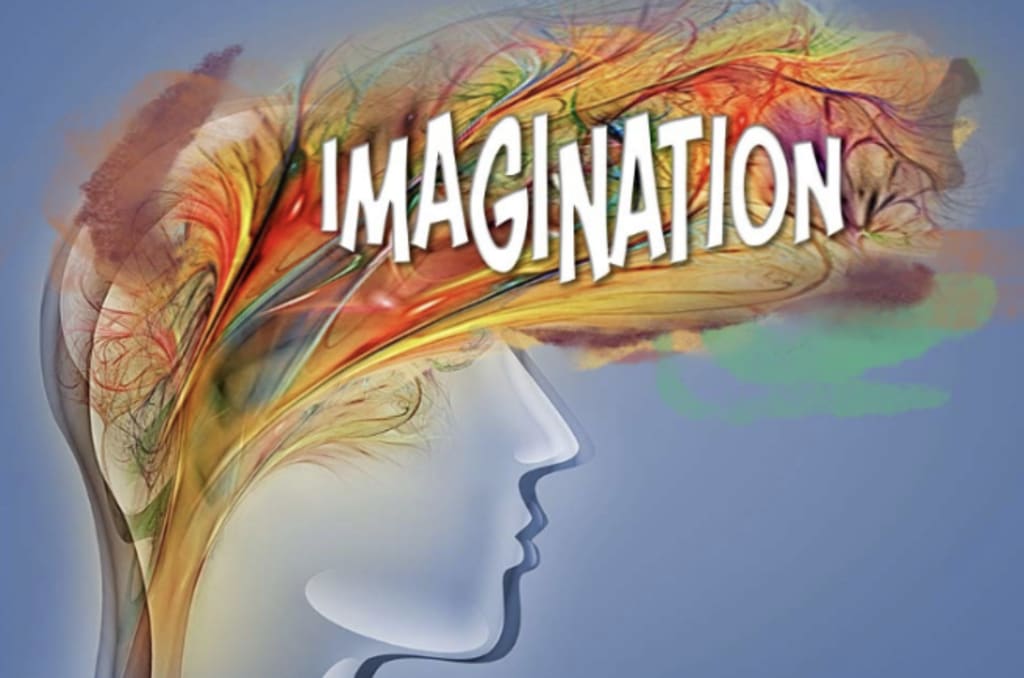The Future of AI
From Imagination to Realisation

Introduction
The concept of Artificial Intelligence (AI) has long been a source of fascination and intrigue, often depicted in science fiction as a realm of limitless possibilities. Yet, what once seemed like a distant dream is rapidly becoming a tangible reality as we witness the remarkable evolution of AI. From narrow applications to groundbreaking advancements, the future of AI is unfolding before our eyes, shaped by relentless innovation and the collective pursuit of human imagination. In this article, we will explore the journey of AI from its humble origins to its transformative potential in various domains, all while addressing the ethical considerations that come with its advancement.
The Genesis of AI: From Imagination to Reality
AI's journey dates back to the 1950s when pioneers like Alan Turing and John McCarthy laid the groundwork for machine intelligence. In the early years, AI was characterized by rule-based systems and symbolic reasoning, limited in scope and unable to adapt to complex situations. However, the turning point came in the 21st century with the advent of machine learning and neural networks.
The Rise of Machine Learning:
Machine learning algorithms empowered AI systems to learn from vast amounts of data, enabling significant advancements in areas like natural language processing, computer vision, and speech recognition. This shift from explicit programming to data-driven learning marked a significant step in AI's evolution, opening the doors to a plethora of applications across various industries.
AI in Everyday Life:
Today, AI has permeated many aspects of our daily lives, from voice assistants like Siri and Alexa to personalized recommendations on streaming platforms and online shopping. AI algorithms analyze our preferences, habits, and interactions, fine-tuning their responses to better serve us. While AI's integration into everyday life brings convenience and efficiency, it also raises concerns about data privacy and potential bias in decision-making processes.
The Journey to General AI
Despite AI's incredible advancements, it still predominantly exists as Narrow AI, designed for specific tasks and lacking the all-encompassing cognitive abilities of human intelligence. The quest for General AI, also known as Artificial General Intelligence (AGI), remains a focal point for researchers and developers worldwide.
AGI aims to mimic human cognition, surpassing the limitations of Narrow AI by understanding context, learning multiple tasks, and exhibiting creativity and adaptability. While AGI could revolutionize numerous industries, including healthcare, transportation, and education, it also poses ethical dilemmas that require careful consideration.
AI and Creativity
One of the most captivating aspects of AI's future lies in its potential to augment human creativity. Generative models, such as OpenAI's GPT-3, can produce art, poetry, and music that often blur the line between human and machine creation. While skeptics argue that AI-generated content lacks genuine emotion, proponents view it as a tool that can inspire and enhance human creative expression.
Collaborative Creativity:
Rather than replacing human artists, AI offers a unique partnership. By collaborating with AI, creators gain access to novel ideas and unique perspectives, pushing the boundaries of what art can achieve. As AI evolves, it can continue to serve as an invaluable tool to amplify human creativity, redefining artistic horizons.
Ethical Considerations and Responsibility
As AI's potential grows, so do the ethical concerns surrounding its implementation. Responsible AI development requires vigilance in addressing issues such as bias, transparency, and accountability.
Bias in AI:
AI algorithms learn from historical data, which may contain inherent biases. If not addressed, these biases can perpetuate discrimination and inequity in decision-making processes, such as hiring or loan approvals. Developing unbiased AI models necessitates a diverse and inclusive approach to data collection and algorithm design.
Transparency and Explainability:
As AI becomes deeply integrated into critical sectors like healthcare and finance, the ability to explain its decisions becomes crucial. "Black box" AI systems, whose inner workings remain opaque, can lead to mistrust and hesitation to adopt AI-driven solutions. Researchers are actively working to create explainable AI models, ensuring transparency and accountability in decision-making.
AI and the Workforce
The widespread adoption of AI inevitably raises concerns about job displacement. While AI automation may replace certain roles, it also creates new opportunities and tasks that demand human creativity, empathy, and problem-solving skills.
Reskilling and Upskilling:
Preparing the workforce for an AI-driven future requires investing in reskilling and upskilling programs. Empowering individuals with the tools to navigate the changing job landscape fosters adaptability and ensures a smooth transition into AI-integrated workplaces.
The Future Unfolds
As we stand on the precipice of a new era in AI, the future remains ripe with potential. Quantum computing, advancements in robotics, and brain-computer interfaces are just a few areas that hold promise for AI's growth.
Continued Collaboration:
The path ahead involves ongoing collaboration between governments, industries, and researchers to establish ethical guidelines and harness AI's potential responsibly. By fostering a culture of transparency and collective growth, we can ensure that AI remains a force for good in shaping our shared future.
Conclusion
The future of AI is a tale of innovation, imagination, and transformation. From its humble origins as a concept in science fiction to its current reality permeating everyday life, AI's journey has been both awe-inspiring and thought-provoking. As we forge ahead, our responsibility lies in shaping AI's development with a steadfast commitment to ethics, transparency, and inclusivity. By nurturing AI as a tool for human creativity and progress, we can create a future where the boundaries between imagination and reality blur, ushering in an era of unprecedented innovation and potential for the betterment of humanity.





Comments
There are no comments for this story
Be the first to respond and start the conversation.